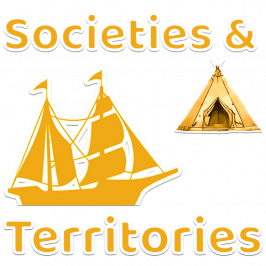In 1980, Quebec’s populationPopulation comes from the Latin populus, meaning “the people.” We say population when we talk about a group... was 6 568 000. PopulationPopulation comes from the Latin populus, meaning “the people.” We say population when we talk about a group... growth had slowed considerably compared to previous years. The birth rateBirth Rate - The number of babies born to a population over a specific period of... was half of what it had been in 1960, and Quebec’s populationPopulation comes from the Latin populus, meaning “the people.” We say population when we talk about a group... was growing more slowly than that of the rest of Canada. With the fall in the birth rateBirth Rate - The number of babies born to a population over a specific period of..., immigration was the main source of populationPopulation comes from the Latin populus, meaning “the people.” We say population when we talk about a group... growth, and the populationPopulation comes from the Latin populus, meaning “the people.” We say population when we talk about a group... was becoming increasingly diverse.
Immigration
After the end of World War II in 1945, the proportion of people of British origin halved in favor of people from other backgrounds. From that date, different waves of immigration gradually transformed the demographics of Quebec. In 1980, the populationPopulation comes from the Latin populus, meaning “the people.” We say population when we talk about a group... was composed of 80% of people of French origin, 8% of people of British origin and 12% of people of other origins. Of these, Italians were by far the largest ethnic group. Most of them arrived in the 1950s and 1960s. During the 1980s, immigrants came from a variety of countries, including Lebanon, Haiti, France, the United Kingdom, the United States and Vietnam. Upon arrival, the majority of immigrants settled in large cities, especially in Montreal.
An urban populationPopulation comes from the Latin populus, meaning “the people.” We say population when we talk about a group...
More and more Quebeckers chose to live in the city, and almost 80% of the populationPopulation comes from the Latin populus, meaning “the people.” We say population when we talk about a group... did so. The suburbs were also growing. More and more people were moving to small towns near major centers like Montreal and Quebec City. They could go to work in the city but live in a less urban environment. By the early 1960s, this new lifestyle was accompanied by a dramatic increase in the number of cars per capita and a boom in the constructionConstruction - The process of building something or putting something together Construction - Le processus de... of roads and highways.
The baby boom generation
In 1980, baby boomers had become adults, and they held most of Quebec’s jobs. This generation, born after World War II, was so much larger than previous generations that society adapted to the baby boomers’ needs. For example, between 1961 and 1968, the education system underwent a reform to make education available for the many baby boomers that were ready to start school.
AuthorAuthor - A person who writes something Auteur - Une personne qui écrit quelque chose: Alexandre Lanoix
See also – Links:







